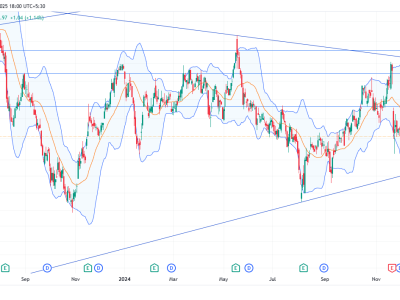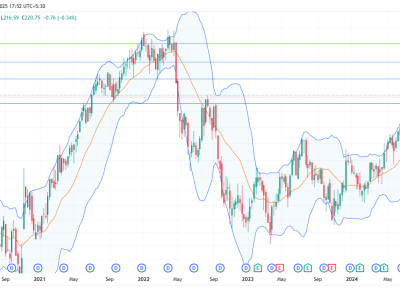
Temu is going “local” after the US President raised tariffs by 10% on all imports from China.
President Trump removed the “de minimis exemption” this week, citing it creates an uneven playing field that benefits Chinese e-retailers at the expense of US companies.
In response, Temu has started promoting products that are available in the US warehouses to improve shipping times as well as navigate the new tariffs on China.
Despite tariffs driven uncertainty, shares of PDD Holdings Inc (NASDAQ: PDD), a Chinese giant that owns Temu, currently sit more than 15% above their year-to-date low.
De minimis unfairly benefitted Temu
What the century-old de minimis exemption meant for Chinese online retailers like Temu was an ability to bring shipments worth less than $800 into the US without having to pay any duties.
The tax exemption enabled them to sell products at an exceptionally low price in the United States – effectively hurting local competition like Amazon.com Inc (NASDAQ: AMZN).
With the exemption now suspended, Temu is filling up its “Lightning Deals” section on the app with products that can be shipped from within the US.
Investors should know, however, that many of these products are only being shipped from US warehouses, but are sourced from China-based businesses, nonetheless.
So, Temu may be able to navigate the immediate challenge of tariffs by leveraging US warehouses, but the longer-term impact on its pricing strategy and ability to compete with local giants like Amazon and Walmart remains uncertain.
Temu now in a direct competition with Amazon
Temu’s switch to local inventory makes it a much more direct competitor of Amazon, eBay, Etsy, and Walmart.
While the likes of Amazon rely rather heavily on products sourced from China as well, the difference so far was Temu’s ability to bypass duties.
It even enabled the Chinese e-retailer to win share from Amazon, pushing it into launching “Haul” – a dedicated platform featuring a wide range of products under $20.
But now that the tax loophole has been sealed, Temu is aggressively onboarding sellers with inventory in US warehouses.
Well over 20% of its US sales are now attribute to those sellers, and not to merchants in China.
The case in favour of de minimis exemption
The United States’ decision against the de minimis exemption could create a more level playing field for local and Chinese e-commerce giants.
But it could also lead to a significant increase in government costs, according to proponents of the regulation.
“At some point, there’s going to be 3 million of these goods piling up a day and customs can do their best, but they’re not equipped. They have to do 10x more screenings this week than last week,” a supply chain industry veteran, Hugo Pakula, argued in a recent statement.
Amazon shares have remained rather muted since the announcement of de minimis suspension.
The post Temu reacts to Trump tariffs: will it keep prices low for US shoppers? appeared first on Invezz









